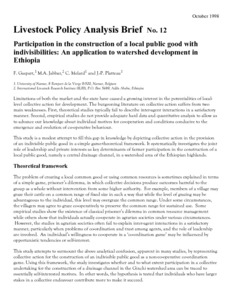National Regulations for Groundwater: Options, Issues and Best Practices
The sustainable management and use of groundwater resources as a source of drinking water supplies, for irrigation, and for other consumptive uses, as well as a supplementary source of surface river flows and of wetlands and wildlife habitats, calls for increasing attention to two major and interdependent sources of concern, namely, depletion and pollution.


